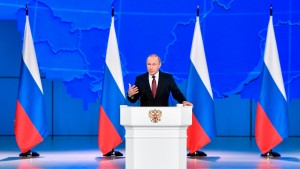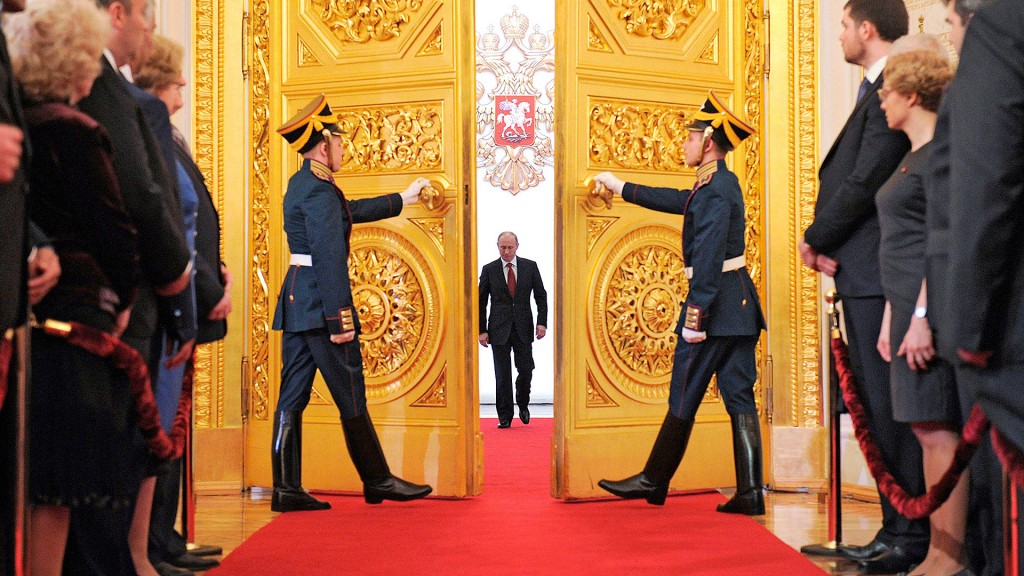Putin isn’t Going Anywhere
There was no lack of warning about the intentions of Vladimir Putin, Russia’s longest-serving leader since Stalin. A generation that has grown up knowing nothing but his rule now looks forward to its indefinite perpetuation. The resignations of the prime minister, Dmitry Medvedev, and the cabinet, may have taken even some of the ministers in question by surprise, as did the sweeping constitutional reforms the president proposed. But the unexpected aspect was the timing and the nature of his move. That he planned to hold on to power after 2024 was largely taken for granted.
For one thing, Putin has form. Since Russian presidents are limited to two consecutive terms, he switched places with his prime minister for four years, allowing him to formally return in 2012. For another, it is hard for strongmen to retire, especially after two decades at the top. Putin, 67, needs to protect himself and his legacy. The issue is not only his immediate interests, but the survival of a system that could prove dangerously unstable without him, especially given the signs of power struggles within the elite. The risk is not only that a former ally might turn on him, but that the whole thing might come crashing down.
The question is how to carry on without provoking a backlash. While Chinese president Xi Jinping simply abolished presidential term limits, Mr Putin still needs the facade of a mandate. In 2011, his announcement that he sought to return to the presidency, and the dubious parliamentary elections which followed, triggered mass street protests. He clearly doesn’t plan to repeat his old trick, since the reforms he proposed on 15th of January would weaken the presidency he has done so much to strengthen, and expand the power of the prime minister and parliament. There had already been speculation he might seek to emulate Kazakhstan’s Nursultan Nazarbayev, who resigned as president last year but remained as chair of the country’s Security Council and kept the title “Leader of the Nation”. Putin’s proposal to strengthen the status of the State Council lends some weight to that theory.
Stepping back from the top jobs might suit him. He prefers grand military and global affairs to the grind of domestic politics. His first decade saw soaring oil prices and an economic boom. These days, he contends with high youth unemployment and falling real incomes: hence his promise of additional support for families with children. The president’s approval ratings hit a 13-year low last year.
The lack of clarity over Mr Putin’s exact plans may help to keep options open as well as to mute public reaction. By moving early, he has time to lay the groundwork symbol¾finding a successor; pushing through some kind of referendum on reforms; effecting the right result in next year’s legislative elections¾and adjust as necessary. For both the president and elites, a new arrangement could prove more treacherous than the tried-and-trusted system. It would be foolish to bet against Mr Putin. But it would be naive to assume that he must remain unassailable forever.
 Jahangir's World Times First Comprehensive Magazine for students/teachers of competitive exams and general readers as well.
Jahangir's World Times First Comprehensive Magazine for students/teachers of competitive exams and general readers as well.



